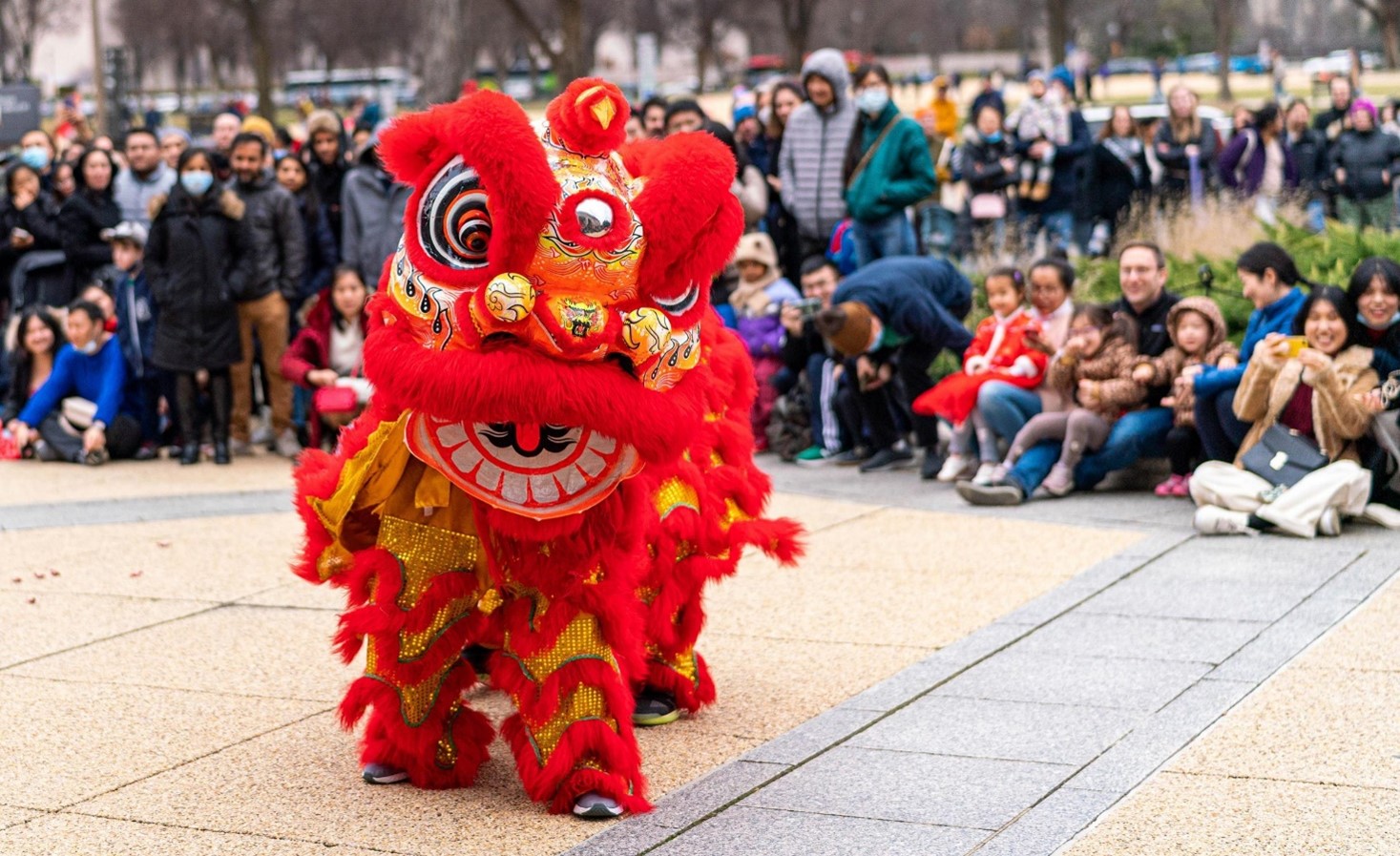CHINESE LION DANCERS
(Press play for feature video)
About the Artist
The Chinese Lion Dance is an important part of the celebration of the Chinese New Year, and it is believed to bring good luck and happiness.
Performers mimic a lion’s movements in a lion costume to tell a story and bring good luck and fortune to the audience. Each lion is controlled by two people; one orchestrates the head movements, and one follows the other’s footwork in the tail. The drum–the “heartbeat of the lion”–guides the lions and leads the cymbals and gong to add excitement and flair. Most popular during Lunar New Year celebrations, lion dancing is also performed at weddings, business openings, school festivals, and community events.
A typical lion dance performance tells a story of one or two lions overcoming an obstacle before obtaining a meaningful object (e.g. lettuce, scrolls). Some of the obstacles include poisonous animals like snakes and spiders, or treacherous landforms like caves and rivers. These are constructed from a variety of props. The obstacle may also be an adversarial Buddha character, played by another performer. The culmination of most lion dance performances is called cai qing (采青), or “plucking the greens.” Cai qing is a homonym for “spreading good fortune” (财青). As such, when the lion plucks the lettuce and tosses it at the audience, it is a symbolic act of spreading fortune.
